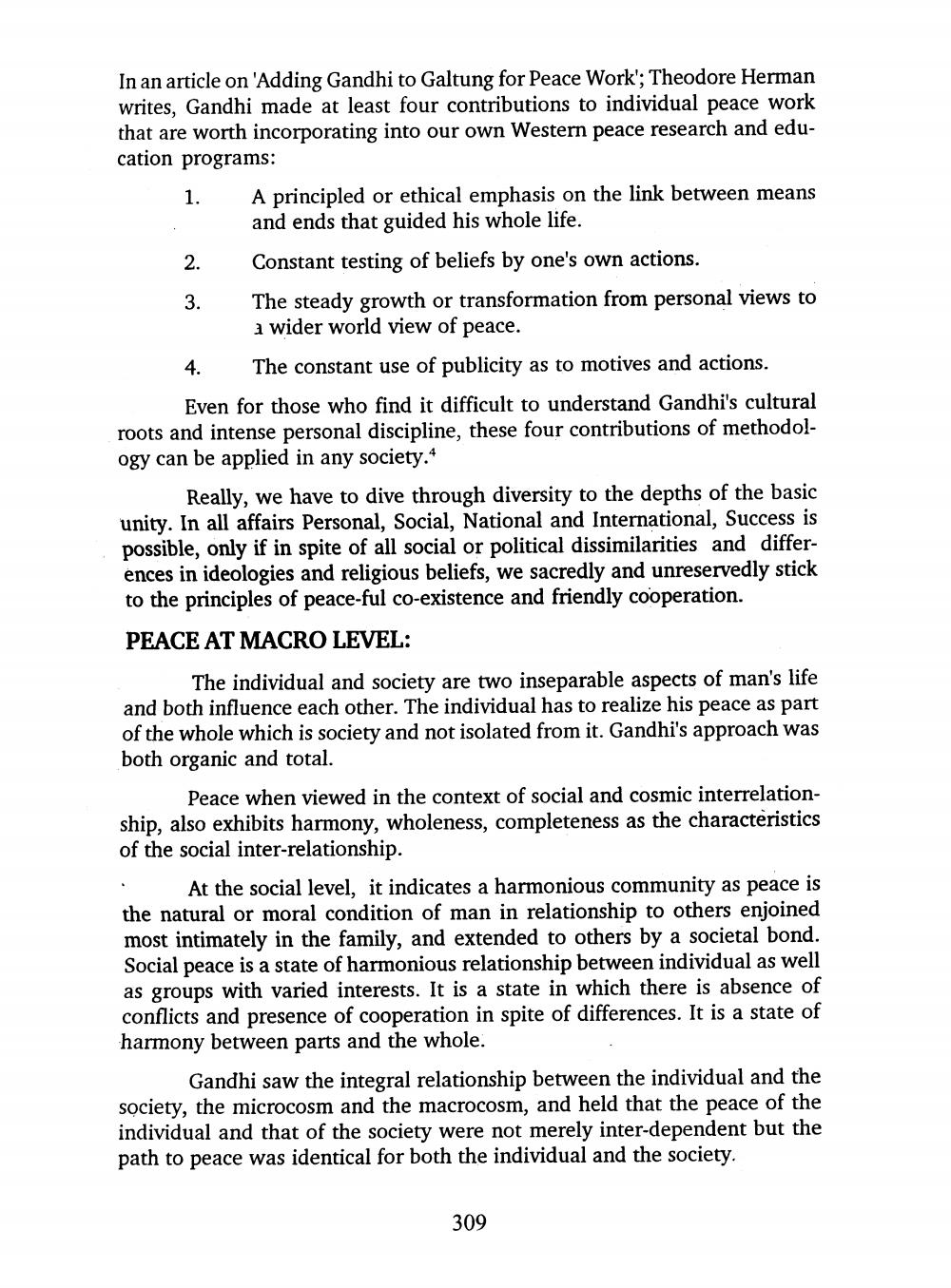________________
In an article on 'Adding Gandhi to Galtung for Peace Work'; Theodore Herman writes, Gandhi made at least four contributions to individual peace work that are worth incorporating into our own Western peace research and education programs:
A principled or ethical emphasis on the link between means
and ends that guided his whole life. 2. Constant testing of beliefs by one's own actions.
The steady growth or transformation from personal views to a wider world view of peace.
4.
The constant use of publicity as to motives and actions.
Even for those who find it difficult to understand Gandhi's cultural roots and intense personal discipline, these four contributions of methodology can be applied in any society.
Really, we have to dive through diversity to the depths of the basic unity. In all affairs Personal, Social, National and International, Success is possible, only if in spite of all social or political dissimilarities and differences in ideologies and religious beliefs, we sacredly and unreservedly stick to the principles of peace-ful co-existence and friendly cooperation. PEACE AT MACRO LEVEL:
The individual and society are two inseparable aspects of man's life and both influence each other. The individual has to realize his peace as part of the whole which is society and not isolated from it. Gandhi's approach was both organic and total.
Peace when viewed in the context of social and cosmic interrelationship, also exhibits harmony, wholeness, completeness as the characteristics of the social inter-relationship. . At the social level, it indicates a harmonious community as peace is the natural or moral condition of man in relationship to others enjoined most intimately in the family, and extended to others by a societal bond. Social peace is a state of harmonious relationship between individual as well as groups with varied interests. It is a state in which there is absence of conflicts and presence of cooperation in spite of differences. It is a state of harmony between parts and the whole.
Gandhi saw the integral relationship between the individual and the society, the microcosm and the macrocosm, and held that the peace of the individual and that of the society were not merely inter-dependent but the path to peace was identical for both the individual and the society.
309




